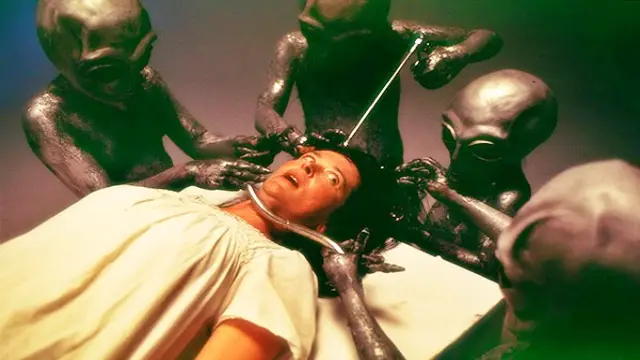nPostednon August 5, 2014
n
n
n
n
n
n
nIfna powerful leader such as a mayor, governor, or president was doingnsomething very wrong, and a newspaper reporter found out about thenwrongdoing…should he publish his findings?
n
n
n
n
n
nInhope you answered, “Of course!”
n
n
n
n
n
nBut…thisnleader is powerful. And he or she is part of the government.nWouldn’t the government official be able to make a lot of trouble fornthe reporter?
n
n
n
n
n
nOncenagain, I hope you are answering that the freedom of the press (and weninclude podcasts and TV reporting and radio broadcasts and blogs asnpart of the “press”) is very important to a free society. Thenpeople MUST be informed of the wrongdoing of their elected officials,nand the informers themselves must be protected.
The questionnof the day is, how did “freedom of the press” get started?
n
n
n
n
n
nTodaynis the historic anniversary of an important step toward that freedom.
n
n
n
n
n
n German-bornnJohn Peter Zenger was a publisher and printer working in New YorknCity. He actually started a publication in order to express hisncriticisms of the colonial governor William Cosby.
German-bornnJohn Peter Zenger was a publisher and printer working in New YorknCity. He actually started a publication in order to express hisncriticisms of the colonial governor William Cosby.
 German-bornnJohn Peter Zenger was a publisher and printer working in New YorknCity. He actually started a publication in order to express hisncriticisms of the colonial governor William Cosby.
German-bornnJohn Peter Zenger was a publisher and printer working in New YorknCity. He actually started a publication in order to express hisncriticisms of the colonial governor William Cosby.n
n
nCosbyndidn’t like being criticized in print. He issued an officialnproclamation that said that Zenger’s New York Weekly Journalnwas filled with “diversnscandalous, virulent, false and seditious reflections.”
n
n
n
n
n
n Andnthen Cosby sent police officers out to arrest Zenger on charges ofn“seditious libel.” After more than eight months in prison, afterntwo trials and several lawyers, the public was behind Zenger andnhanging on every word of the trial. The main defense lawyer, AndrewnHamilton, pleaded the case directly to the jury (because the judgenowed his position to Cosby and had been showing bias at every turn.
Andnthen Cosby sent police officers out to arrest Zenger on charges ofn“seditious libel.” After more than eight months in prison, afterntwo trials and several lawyers, the public was behind Zenger andnhanging on every word of the trial. The main defense lawyer, AndrewnHamilton, pleaded the case directly to the jury (because the judgenowed his position to Cosby and had been showing bias at every turn.
 Andnthen Cosby sent police officers out to arrest Zenger on charges ofn“seditious libel.” After more than eight months in prison, afterntwo trials and several lawyers, the public was behind Zenger andnhanging on every word of the trial. The main defense lawyer, AndrewnHamilton, pleaded the case directly to the jury (because the judgenowed his position to Cosby and had been showing bias at every turn.
Andnthen Cosby sent police officers out to arrest Zenger on charges ofn“seditious libel.” After more than eight months in prison, afterntwo trials and several lawyers, the public was behind Zenger andnhanging on every word of the trial. The main defense lawyer, AndrewnHamilton, pleaded the case directly to the jury (because the judgenowed his position to Cosby and had been showing bias at every turn.n
n
n
n
n
nAndnhow did the lawyer defend Zenger? He obviously HAD published thenthings that Governor Cosby said he had – the printed papers werenright there, for all to see! Hamilton’s argument was that, if hencould prove that the things Zenger had said were TRUE, it wasn’tnlibel.
n
n
n
n
n
n That’snnot how things were seen back then. There was an argument that “anlibel is no less a libel for being true.” In British law, backnthen, truthful criticisms of others were the worst sort of libel,nbecause if the criticisms were true, the criticized couldn’t easilynrefute them. n
That’snnot how things were seen back then. There was an argument that “anlibel is no less a libel for being true.” In British law, backnthen, truthful criticisms of others were the worst sort of libel,nbecause if the criticisms were true, the criticized couldn’t easilynrefute them. n
 That’snnot how things were seen back then. There was an argument that “anlibel is no less a libel for being true.” In British law, backnthen, truthful criticisms of others were the worst sort of libel,nbecause if the criticisms were true, the criticized couldn’t easilynrefute them. n
That’snnot how things were seen back then. There was an argument that “anlibel is no less a libel for being true.” In British law, backnthen, truthful criticisms of others were the worst sort of libel,nbecause if the criticisms were true, the criticized couldn’t easilynrefute them. nn
n
n
n
n
nHamiltonnargued that people ought to be able to criticize their government.nZenger, writing as Cato in his Journal, said, “The exposingntherefore of public wickedness, as it is a duty which every man owesnto the truth and his country, can never be a libel in the nature ofnthings…”
n
n
n
n
n
nOnnthis date in 1735, the jury found Zenger innocent of libel. The truthnwon out!
n
n
n
n
n
nDidnyou know…?
n
n
n
n
n
nLibelnis now generally defined as false statements appearing in print (ornvia audio visual media) that harm the reputation of a business,nindividual, product, government, or even group.
n
n
n
n
n
nSlandernis the same thing but spoken rather than published or broadcast.
n
n
n
n
n
nDefamationnis the general term that includes libel and slander.
n
n
n
n
n
nAlsonon this date:
n
n
n
n
n
n
n
n
n
n
n
n
n
n
n
n
n
n
n
n
nAssistancenDog Day
n
n
n
n
n
n
nFoundationnDay in Santo Domingo
n
n
n
n
n
n
n
n
n
n
n
n
nAnniversarynof a quasar breakthrough
n
n
n
n
n
n
n
n
n
n
n
n
n
n
nPlannahead:
n
n
n
n
n
nChecknout my Pinterest boards for:
n
- n
-
nAugustn holidays
n
-
nAugustn birthdays
n
-
nHistoricaln anniversaries in August
n
n
n
n
n
n
n
n
n
nAndnhere are my Pinterest boards for:
n
n
- n
-
nSeptembern holidays
n
-
nSeptembern birthdays
n
-
nHistoricaln anniversaries in September
n
n
n
n























